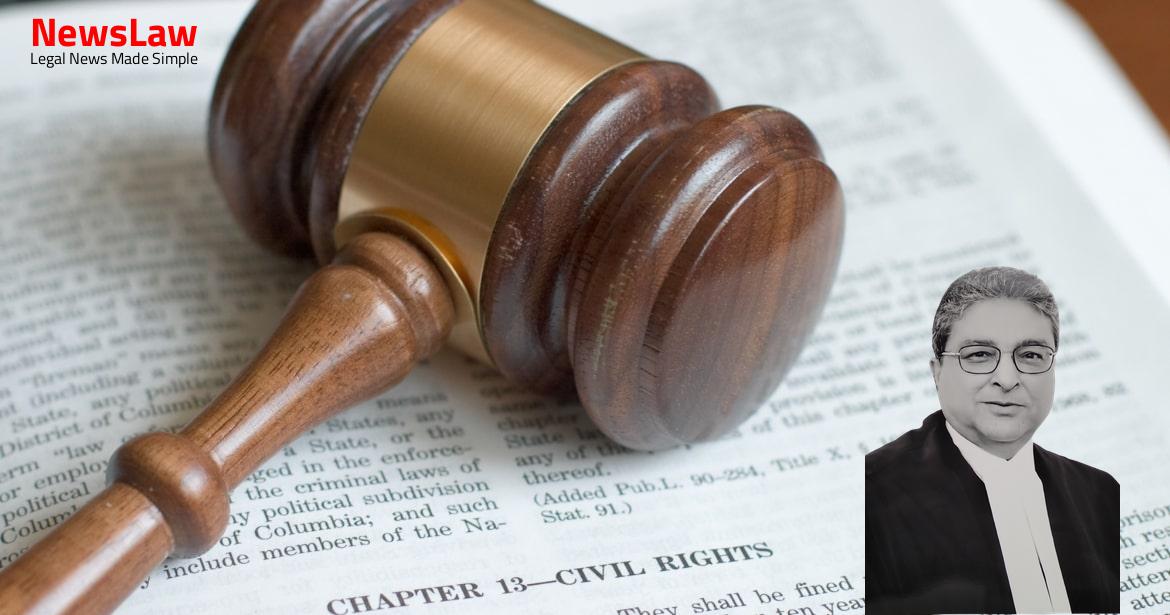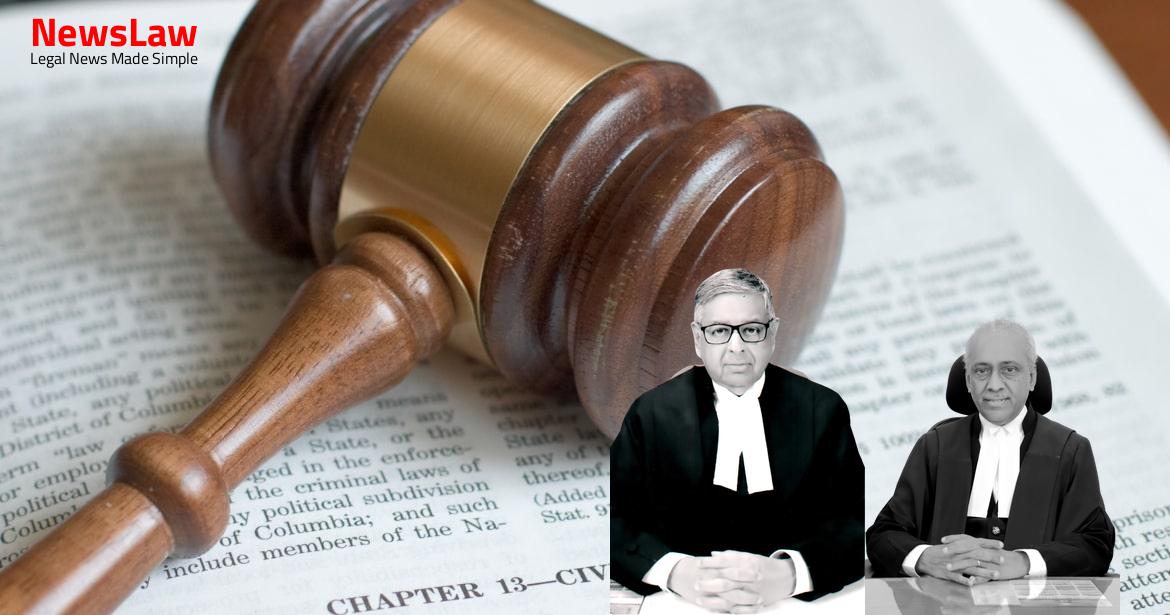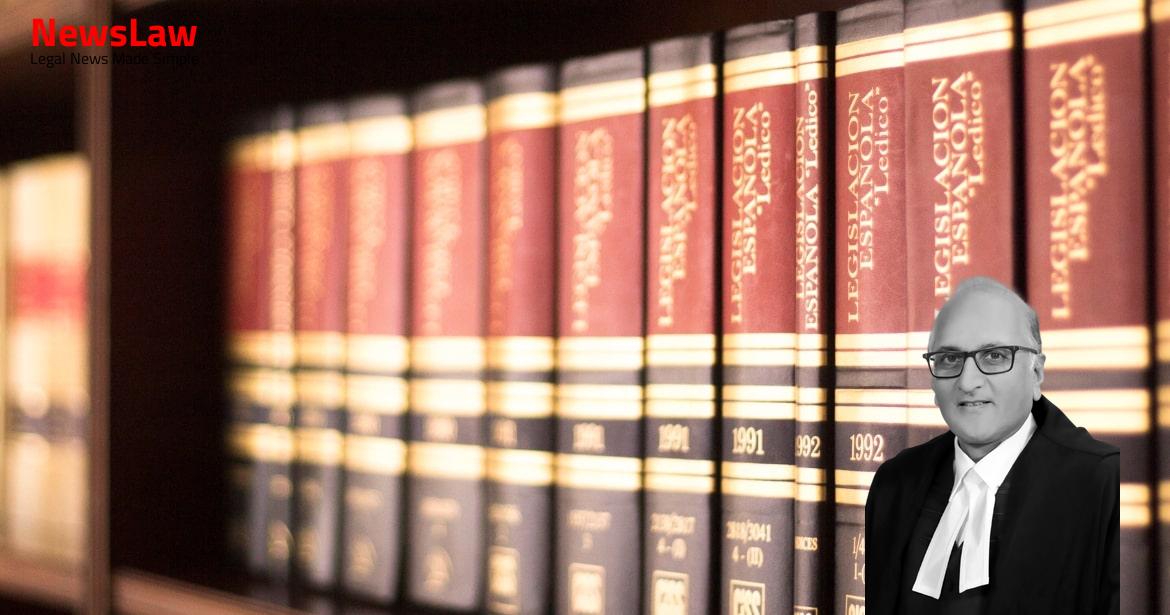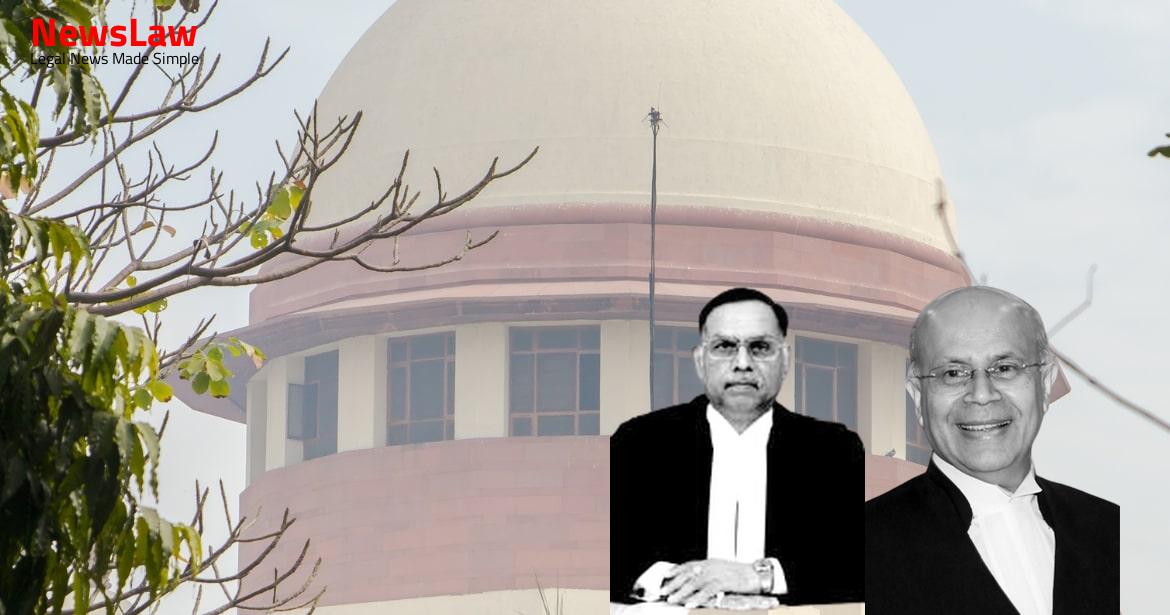A recent Supreme Court judgment addressed the issue of Electoral College and reservations in workers’ unions. The case of Kopargaon Taluka Sakhar Kamgar Sabha v. Election Officer involved the interpretation of the Sabha’s Constitution regarding unit-wise reservations and separate Electoral Colleges. The ruling provides crucial insights into the legal framework governing elections in representative unions.
Facts
- The appeal challenges the judgment and final order dated 12.09.2018 passed by the High Court dismissing Writ Petition No.5599 of 2018 by the appellants.
- Kopargaon Taluka Sakhar Kamgar Sabha was registered on 30.06.1951 as a Representative Union under the provisions of the Act.
- The members of the Sabha would first elect the delegates to the General Council of the Sabha.
Analysis
- The Election Officer’s stipulations, such as unit-wise reservations and reservations for women, were not in accordance with the Constitution of the Sabha.
- The concept of separate Electoral Colleges for each unit was not consistent with the Sabha’s Constitution.
- The idea of separate Electoral Colleges for each unit was deemed laudable and reasonable by the appellants.
- The appellants argued that what is not prohibited by the Constitution can be permitted if it serves a reasonable purpose.
- Reference was made to the decision in Laxmidas Dayabhai Kabarwala v. Nanabhai Chunilal Kabarwala to support the argument.
- The Election Officer’s stipulations for reservations and separate Electoral Colleges were considered not legally precluded but not in line with the Sabha’s Constitution.
- The appellants contended that the separate Electoral Colleges could provide better representation to each unit.
- The Managing Committee of the Sabha shall consist of not more than 70 members
- The Management of the Sabha is vested in the Managing Committee elected by the General Council
- The General Council of the Sabha consists of delegates elected in a meeting of members of each factory
- Election of General Council delegates is held every five years
- Delegates of the General Council continue until replaced by the members
- Workers were given a right to be heard in a winding up petition based on the decision in National Textile Workers’ Union v. P.R. Ramakrishnan case.
- The right to apply for winding up of a company is conferred by statute to specific individuals.
- Workers do not have the right conferred by the statute to present a winding up petition against a company.
- The idea of unit wise representation and reservation must come from the governing Statute or the Constitution of the Sabha.
- The Election Programme cannot invent and implement the idea of unit wise representation and reservation on its own.
- The Industrial Court and the High Court were justified in their views on this matter.
- The Election Programme must fully comply with the governing Statute and the Constitution of the Sabha.
Also Read: CRPF Act: Validity of Rule 27 for Compulsory Retirement – Case of Head Constable vs. CRPF
Decision
- The appeal is dismissed
- No costs to be paid
Also Read: DAMEPL vs. DMRC: Curative Petition and Arbitral Award Restoration
Case Title: KARBHARI Vs. DEEPAK V. CHENGEDE
Case Number: C.A. No.-005936-005936 / 2019



